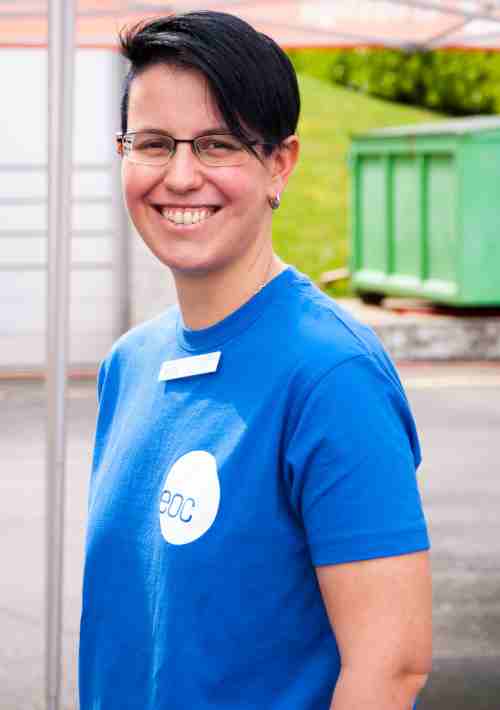My Name is Veronica, I am 32 years old and I’m a registered nurse since 2013. During 2018 I graduated as an oncology nurse with a Diploma of Advanced Studies at the Professional University of Southern Switzerland. I worked in 1 of the 4 oncology clinic in Ticino, Switzerland for 3 and half years. Now I am part of the haemato-oncology team of the Istituto Oncologico della Svizzera Italiana (IOSI) from April 2017. In 2018, I joined the transplant group.
At the beginning of my training in transplant group, they offered me a chance to join the annual EBMT Annual Meeting in Frankfurt, with enthusiasm I decided to accept the offer. I have no expectation while it was my first time at a Congress like this. Afterwards I attended EBMT, I can say that it was a very important event and has absolutely enriched my occupation every day.
The various presentations I was able to attend during the congress made sure that I changed my perspective. I have always been a nurse attentive to detail, but after the Annual Meeting I increased my attention especially for the treatment of central venous catheters and apheresis procedures.
I find it difficult to choose a specific topic that I found most interesting at the EBMT. However, the following made me reflect the most. They were shown during the nurses group by Laura Platon- ‘Indication for intensive care’ and Barry Quinn- ‘How to change from active to palliative care.’
These two are contrasting, but similar topics. Both included decision-making with criteria to be observed. Making a decision to decide on intensive care or palliative care happens daily in practice at every workplace. Often these kinds of decisions are difficult to make as we decide whether to transfer a patient to intensive care or decide to stop all active therapy to continue with a palliative support course. Clearly, those are medical decisions. However, as nurses, we spend a lot of time with the patients and are able to make a difference. We observe most of the changes patients experience during the shift. We can assess our patients and communicate in a timely manner, promoting patient well-being by being an advocate for them
I would thank the EBMT Annual Meeting for this enriching experience given to me. This congress has left me a great professional background that I will carry with me every day.
